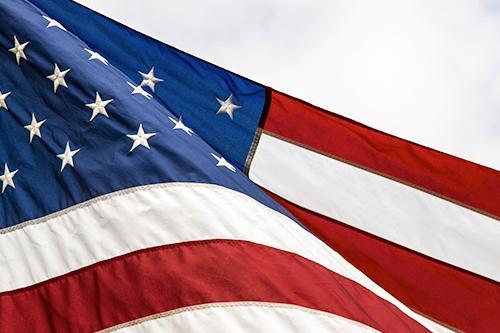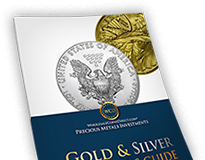
Presidential Election Take-away
‘It ain’t over ‘til it’s over’ is a Yogi Berraism that has to apply in spades to perhaps the most contentious and one of the most tightly fought U.S. Presidential elections in history. Turnout has reportedly been a new record and the votes recorded by both main candidates were also at record levels. The count just dragged on and on in several key states, and while there are recounts under way in at least two of them and legal challenges in others, the official outcome, although called for Joe Biden, still remains in the balance while legal challenges and the recounts remain under way. To an observer from an almost equally divided nation politically – here in the UK between the Conservative and Labour political parties - the amount of rancor and the recourse to legal challenges over the apparent US result seems bizarre in the extreme.
While it appears that former vice-President Joe Biden has in all probability won the day, President Trump still hasn’t conceded – will he ever – and he appears to be pursuing every challenge possible to try to retain the Presidential crown. Meanwhile gold prices, and those of the other precious metals, are fluctuating as one or other of Biden or Trump seems to be gaining the ascendancy. As the election results came in the gold price moved up to above $1,950 an ounce on the expectation that Joe Biden will be the next President of the USA from January 20th next year. But, as we said above, ‘It ain’t over ‘til it’s over’. However news of a possible effective virus vaccine coming through had the opposite effect, moving global equities up sharply and knocking the gold price back well below $1,900 again.
As to the election itself, when President Trump appeared initially to be in the lead in most of the battleground states, and indeed had already won the key state of Florida, the gold price dipped sharply, but when the mood changed to a likely Biden victory as the millions of seemingly predominantly Democrat postal votes were counted in Pennsylvania, Nevada and Arizona, the gold price took off to the positive on the assumption that the Democrats, when in power, would push to implement a far bigger economic stimulus give-away than would a Trump-controlled Republican administration – potentially positive for equities and gold.
There was also the expectation that a Biden/Harris administration would be a far less confrontational one than the current Trump/Pence one and could lead to a more bi-partisan approach to government. This, it is assumed, would be another positive factor for continued growth in equity valuations and precious metals price strength and perhaps a weaker dollar. However the prospect of a Democrat President and House and a marginally Republican Senate, which still looks to be the most likely outcome, could cut back any proposed Biden-initiated economic stimulus package thus denting some of the assumed benefits likely to accrue to equities and precious metals from a bigger economic stimulus.
The Senate post-election currently looks like remaining in Republican hands, even if only just – but still depends on a two senate seat runoff in Georgia. A Republican-controlled Senate could block Democrat-instigated initiatives, although we do assume that without as aggressive and single-minded a Republican President, as Donald Trump has proven to be in dictating policy, if Biden does emerge victorious, there may be wriggle-room for a more consensual approach to some proposed legislation – particularly on potentially less potentially partisan issues like climate change and in some aspects of foreign policy. At least that is the way it appears to a relatively independent outsider. Some Republican Senators may even be relieved that Trump is no longer President and might thus be more open to reaching some compromise agreements with their erstwhile political foes.
President Trump and his advisers had obviously foreseen this likely outcome to the election well in advance given the adverse polling data being recorded across the country. Indeed he probably did rather better than he had expected. Thus his much-forecasted playbook took off as he had suggested and he and his advisers had prepared for. First he claimed an early victory in front of his supporters on the basis of in-person votes cast – seemingly the only votes he saw as legitimate - well before all the final votes had been tallied, and then as the mostly-Democrat-leaning postal votes were being counted he pushed his initially-postulated postal vote fraud agenda, seemingly without any evidence thereof. He, and/or his Republican supporters, then sought to have postal vote counts stopped or contested in those states where these votes threatened to overturn an initial on-the-day Republican lead, although was happy to continue counting in states where there was a potentially higher proportion of pro-Republican mail-in votes.
There was a reported saying by an Irish rugby union captain in the runup to a major tournament that they ‘should get their retaliation in first’. The Trump team certainly seemed to have been doing just that!
President Trump always had, in part, set this ‘retaliation’ policy up well in advance. He had encouraged his supporters to vote in person on election day, probably in the somewhat cynical understanding that the postal voting element would strongly favor the Democrats anyway, and his policy was always going to be to challenge this with so far unsubstantiated claims of postal vote fraud. Thus perhaps his only real chance of victory might lie in delegitimizing the postal vote element and calling for only on-the-day in-person votes to be counted as legitimate voting intent.
We are thus assuming that President Trump will not concede defeat. It does not seem to be in his nature to do so, even if there are calls, even from some Republicans that he should do so, unless or until all the recounts and his legal challenges are exhausted. That is even though former Vice-President Biden has been called as President elect. The recounts in states where the margins are very close are certainly justifiable, but are unlikely to make any significant difference to the declared results. But the legal challenges, which some view as spurious, make for an uncomfortable situation for the U.S. people who will effectively remain in political limbo until the outcome is finalized.
President Trump had thus judged the likely voting outcome and nuances well from his point of view. As a rule Democrats were more concerned about the coronavirus spread – and perhaps justifiably given the record number of new cases and deaths being recorded almost on a daily basis – these have, in recent days, become alarmingly high. The USA is recording some of the highest numbers of coronavirus-related deaths per head of population of anywhere in the world.
There has been the opinion expressed that President Trump’s initial denials that there was a pending virus problem were massively dangerous to the USA’s populace and his thus somewhat muted response was, in effect, hugely damaging to the lives of Americans all across the country. To play the Devil’s Advocate here, the President had been hugely aware of the damage many suggested virus-control measures, including a nationwide lockdown as imposed in many other countries, would cause to the USA’s economic growth prospects. This, in turn, would also, perhaps indirectly, likely be damaging to the health of the nation. His response was thus very much a political decision to try and keep the US economy moving, although perhaps expressed badly in his statements and in his apparent obvious disdain for his medical advisers and their suggestions.
President Trump also seems to have recognized that on election day there was always likely to be a Democrat-oriented postal vote majority with Democrats more reluctant to vote in person on the day for fear of picking up the virus, while the many virus-denying Republicans were much more likely to turn out in person. He had foreseen this well in advance, and had even promoted this opinion that his supporters should vote in person among his followers, and had thus paved the way for challenging the already well-established postal vote system in the event of the kind of outcome that eventually unfolded. This may also have been behind his decision to force through, with a willing Senate behind him, a right-leaning slate of Supreme Court justices who might support him should legal challenges come up before this august body.
So, although it is increasingly looking to us outsiders as if Joe Biden has effectively won the Presidency there still remains a major degree of uncertainty over the eventual outcome due to the pending legal challenges, which could take weeks, if not months, to be settled. One suspects the gold price will continue to be volatile with the ebb and flow of the challenges, but overall we see this uncertainty as a positive for precious metals. Our prediction that $2,000 gold could be reached again before the year-end probably no longer remains a likelihood, particularly given the downturn in prices following the Pfizer virus vaccine announcement. Time is running out for this to happen.
Meanwhile the FOMC meeting under way immediately following the election date, was always unlikely to come up with any new initiatives, given the uncertainty over the election’s final outcome, although the Fed’s pessimistic views on the direction the economy is taking should carry some weight regardless. There were thus no projected changes in the likely interest rate policy and inflation targets and we will have to wait for the January meeting – due at the end of that month shortly after the official Presidential inauguration date, assuming the Presidential outcome is settled by then, for any serious possible changes in current policy. But this may still be too soon to make any lasting decisions if the election outcome has not been fully settled by then.
To us in Europe, where ‘socialism’ isn’t a dirty word as it seems to be in much of the USA and where even the centre-right political parties, which mostly dominate government here, perhaps have policies more in common with those of the US Democrats than the Republicans, the USA election process – certainly as it has panned out in the past week - looks a little irrational. That the final outcome could end up in the Supreme Court, which itself is seen to be politically biased given the justices are, in effect, political appointees, is bizarre in the extreme. However we do assume that the justices will, if it comes to this, be relatively impartial in their rulings and support the US Constitution rather than one or other of the potential Presidential incumbents. But perhaps this is wishful thinking on our behalf.
The US Presidential Election
The US Presidential election is obviously followed closely worldwide given the size of the US economy and its dominance in international finance, politics and interventionist acts. President Trump generates a negative image in the greater part of the world’s press, much of which is self-inflicted given his penchant for announcing key decisions over the internet on platforms like Twitter – a process which is deemed un-Presidential in much of the rest of the world.
Trump also has a reputation for making statements which are patently untrue, although whether this is by design, or through bad advice and/or misinterpretations of facts, sometimes remains obscure. Virtually all politicians lie on occasion, usually in the perceived interests of their respective countries or political parties, or through poor received information, but President Trump seems to foster obvious untruths more frequently than most others. This may often be because it is always dangerous for a politician to make off-the-cuff comments, to which he is prone, before receiving full information.
There is little doubt that as the US President Donald Trump has made some important and valuable reforms and decisions in both domestic and foreign policy. However his propensity for ‘shooting from the hip’ makes him seem dangerous in being commander-in chief of the world’s most powerful and wealthy nation, albeit one that is still riddled with enormous economic and political divisions within its own people. Because of this a confirmed Joe Biden victory would probably be well received around the world, should it pan out that way as currently seems likely.
We mentioned above the adverse effect the news of a possible vaccine development breakthrough had had on equities (positive) and precious metals prices (negative), but this reaction has probably been both premature and overdone. Perhaps we should prepare for a bounce in precious metals prices and a possible slump in equities once the initial euphoria wears out. We suspect any new developments on the Presidential election front will also start to sway things once more. Even if the vaccine does prove effective it is early days yet. There are logistical problems involved – the vaccine needs to be kept at minus 80 degrees Celsius for example – and it will take time to be rolled out to the general public with health workers presumably having priority. Until general availability happens the US economy will remain depressed, although optimism among the general public may at least boost pre-Christmas retail business.






